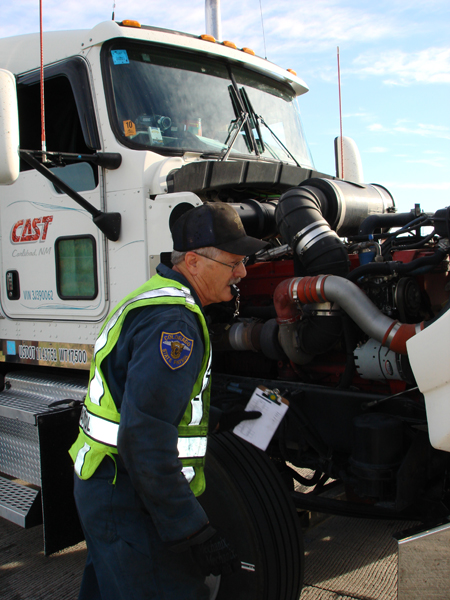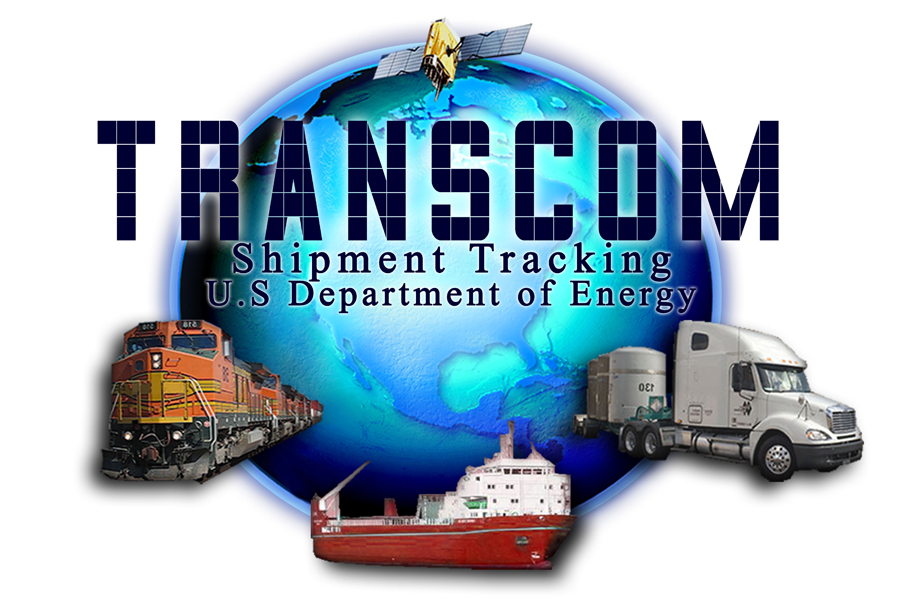Accident Prevention
Most truck accidents can be avoided by alert, skilled drivers who avoid driving when road and weather conditions are particularly hazardous and who use high quality, well-maintained equipment. These preventive measures were used in developing the accident prevention portion of the program to reduce the risks associated with transporting hazardous materials.
- Driver and Carriers. The US Department of Transportation sets standards for drivers of trucks that carry hazardous cargo. The Department of Energy agreed to go beyond these requirements for its WIPP drivers and carriers. DOE has contracted with dedicated carriers whose drivers have extensive, accident-free experience. WIPP drivers are subject to unannounced drug testing and are given no financial incentive to drive at excessive speeds. The states have a program to independently audit the shipping contractors for compliance with the vehicle and driver requirements.
- Independent Inspections. To identify and correct any mechanical defects in the vehicle and to ensure that radiation levels are within allowable limits, all shipments are subject to multiple inspections by state officials using safety standards that are much more stringent than those for other hazardous materials shipments. The uniform inspection procedures are called the "Commercial Vehicle Safety Alliance (CVSA) North American Standard Out-of-Service Criteria and Level VI Inspection Procedures and Out-of-Service Criteria for Commercial Highway Vehicles Transporting Transuranics and Highway Route Controlled Quantities of Radioactive Materials as defined in 49 CFR 173.403." CVSA inspections are conducted by specially trained state inspectors three times: prior to departure from the generator site and upon entry into both Colorado and New Mexico. In compliance with their contract with the Department of Energy, drivers are required to stop approximately every three hours or 150 miles to conduct a mechanical inspection of the vehicle.
- Bad Weather and Road Conditions. The states and the Department of Energy have agreed on procedures to monitor weather and road conditions so that shipments can avoid hazards. If unexpected bad weather or road conditions are encountered, preselected safe parking areas are available at specific military facilities or Department of Energy sites. No shipments are scheduled during rush hour traffic in major metropolitan areas in Colorado.
- Shipment Notification and Tracking. All transuranic waste shipments are monitored and tracked through a satellite-based system called TRANSCOM. The State of Colorado has direct access to this system, which provides shipping schedules and real-time tracking of shipments on the road. Colorado State Patrol Commercial Vehicle Safety Alliance Level VI inspectors monitor the system in order to schedule inspections as well as to monitor transit through the state. TRANSCOM allows communications with drivers and immediate emergency response guidance information, if necessary. Satellite digital phones are available on each truck.
Photo courtesy of the US Dept. of Energy

